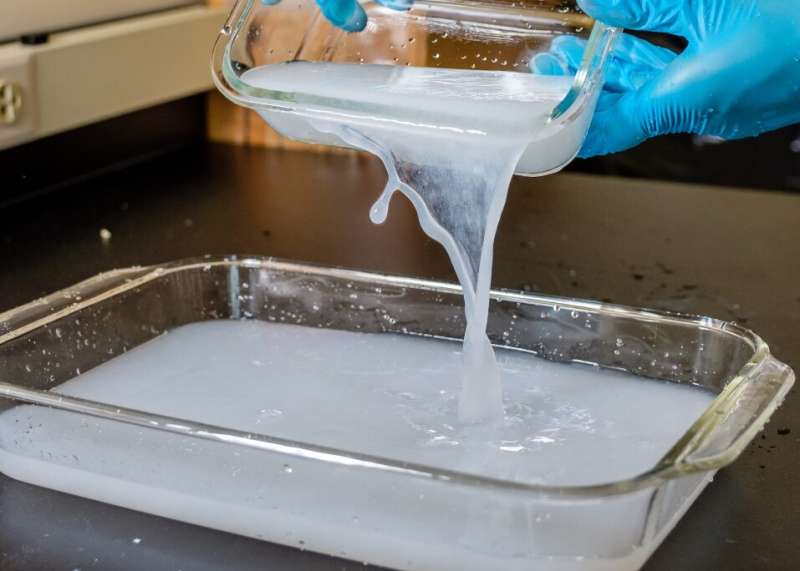Researcher creates wood-based alternative to single-use plastic

University of British Columbia researcher Dr. Feng Jiang has developed a cellulose film that looks like plastic and behaves like plastic—but is biodegradable.
Dr. Jiang's process breaks down wood fibers (sourced from forest waste) in a solution of cold sodium hydroxide combined with mild mechanical blending. The sodium hydroxide is then recycled. The result is a translucent, strong and water-resistant film.
Other researchers have also developed cellulosic films, but the UBC project is the first to use small amounts of energy and chemicals in the manufacture.
Like conventional plastic, the film can be made into coffee bags or chip bags, pouches (like pouches for cereal or frozen fruit), or protective wrap like bubble wrap or envelopes.
The difference is that at the end of its life cycle, the cellulose film can be buried in the ground or an organics bin, where it will break down within three weeks.
With certain plastics taking up to a million years to decompose, single-use plastic is a massive source of pollution and it also uses significant amounts of toxic chemicals during manufacture. Dr. Jiang and his team hope to bring their film to market within a few years to offer an alternative that is environmentally friendly and marks a new use for forest byproducts.
The research was published in ACS Sustainable Chemistry & Engineering.
More information: Sibo Tian et al, Fabrication of a Transparent and Biodegradable Cellulose Film from Kraft Pulp via Cold Alkaline Swelling and Mechanical Blending, ACS Sustainable Chemistry & Engineering (2022). DOI: 10.1021/acssuschemeng.2c01937
Provided by University of British Columbia





















